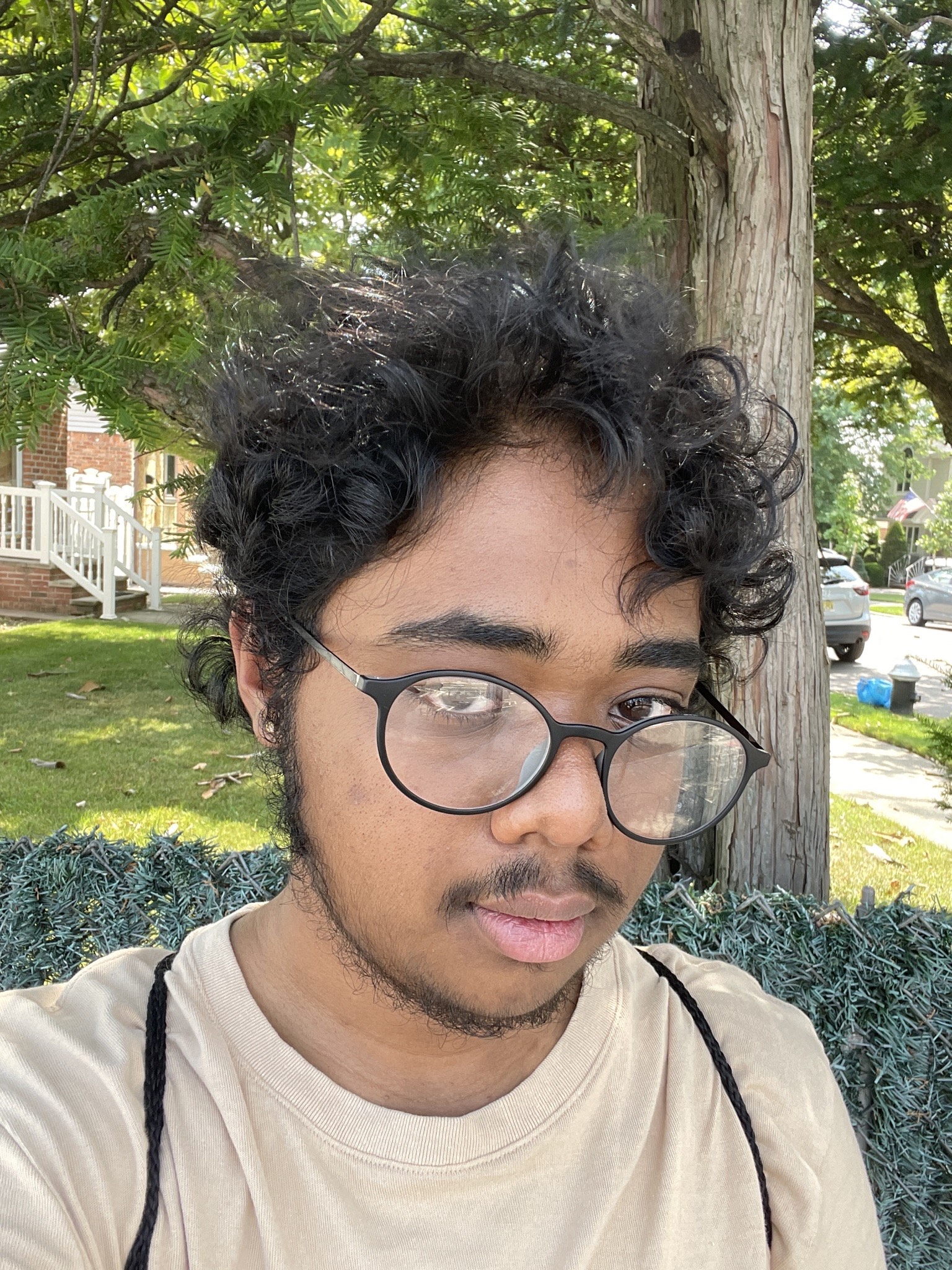YOCCF is informed and inspired by the young visionaries in the movement.  Members of the Youth Advisory Group work to help to develop innovative evaluation tools.
Members of the Youth Advisory Group work to help to develop innovative evaluation tools.
In our first Youth Advisory Group member spotlight, we’re proud to feature Samir Malik, a rising junior studying film production and anthropology at the City College of New York. In addition to his coursework, Samir is an active member of Desis Rising Up and Moving (DRUM), an organization founded in 2000 to build the power of South Asian and Indo-Caribbean low-wage workers, youth and families in New York City. We learned more about his work, philosophy around culture change and advice to philanthropy in this conversation.
Can you tell us about your work as a member of the Youth Advisory Group?
We had our first in-person meeting as a cohort in May. We participated in some parts of that meeting, but mostly we observed how people were interacting and engaging with each other. It was great to see the similarities in how people are thinking and how aligned people are in their ideologies. One of the cool things we did was draw commemorations for medical workers, who were so central during the pandemic. We wanted to highlight how important they are to our communities. That was a big theme — how community is always at the root of organizing.
What goals do you have for this cohort of movement partners?
In our first evaluation session, we noticed that people were able to find common ground and agree on shared ideas, but most have yet to put these into practice. My hope is that we start to see some tangible progress from the cohort in applying the tools and frameworks we’ve developed. I’d like for us to initiate projects or events where members can discuss and evaluate the tools, as well as learn how to effectively utilize them for creating change. It can be difficult to move from ideas to implementation, so I hope we can collaborate and workshop how to translate the insights from our dialogues into on-the-ground action, campaigns and advocacy. Putting our common values and visions into practice is crucial for creating real impact.
Which of YOCCF’s Core Narratives resonate most deeply with you?
I think the Importance of Young People and Intergenerational Success are really important. We meet a lot of people in a lot of different fields; we work with politicians and schools and nonprofits, and basically all of them say the same things: that the youth are important. Once you’ve been in this work for a while, your roles shift — you become a mentor and organizer to help a new generation of people get started. I think it’s so important for different generations to communicate and bond. I really think that’s something we’re missing right now.
How do your studies converge with your work?
There’s a lot of cross-pollination. One of the reasons I started studying social sciences was because I’m interested in human societies and human culture. Once I actually started taking classes in anthropology and sociology, I realized how many times when we talk about culture, we’re also talking about inequality, justice and organizing. I was like, “This is the exact type of stuff I want to do anyway. I want to do something where I can use my skills to help and make things better.” So, I just kept doing that.
The more I learn about the way systems of inequality work, the more I want to keep organizing. I think in our capitalist society, it’s easy for us to think we’re struggling by ourselves, because there’s this focus on independence, but I don’t agree with that. Going all the way back to ancient civilizations, we have evidence of communities coming together to help each other, to help disabled members, to help those in need. Community support, mutual aid and organizing aren’t new concepts — they’re part of what makes us human.
You brought up the idea of mixing arts and advocacy, which is a gap that YOCCF is trying to bridge. How have you seen those two realms converge?
I would also say that art has always been used as a way to protest. This summer, I was doing an internship with Equality New York, an organization working to advance equality and justice for LGBTQI New Yorkers and their families. I did a lot of the graphic design and art for them, and I really found that the role of art is so important in advocacy. If we put out a flyer with just some text on it… What is there to engage people?
Art is how we engage, motivate and inspire people to keep doing the work. Seeing the inequalities and injustice we do can be really stressful, but art helps energize us and helps us shoulder those burdens.
What else could funds and organizations be doing to foster communication and build solidarity?
I think that opportunities for people from different generations to come together would be really useful. Workshops, or series of workshops, where younger and older people can get to know each other and contextualize why different generations think the way that they do, can help us better understand each other. The world is very different now than it was 50 years ago — technologically, politically, socially — and all of those things influence how we think about society and systems of inequalities. Being able to better understand where everyone is coming from will help us have compassion and keep us from becoming immediately defensive. I know that I, and a lot of other young people like me, are kind of hostile toward older generations because we feel like they’re criticizing us, but within our organizations, we’re all working toward the same goals.